 https://necins.com/wp-content/uploads/2024/03/Lawyer-pointing-to-document-and-discussing-legal-text.jpg
1250
2000
AbstraktMarketing
/wp-content/uploads/2022/12/logo-NEC-blue.png
AbstraktMarketing2024-03-29 08:22:572024-04-30 15:28:49What’s the Point of General Liability Insurance for Small Businesses?
https://necins.com/wp-content/uploads/2024/03/Lawyer-pointing-to-document-and-discussing-legal-text.jpg
1250
2000
AbstraktMarketing
/wp-content/uploads/2022/12/logo-NEC-blue.png
AbstraktMarketing2024-03-29 08:22:572024-04-30 15:28:49What’s the Point of General Liability Insurance for Small Businesses?The Role of Risk Management in General Liability for Businesses
Risk management and general liability insurance play a crucial part in businesses’ stability and continuous operation across multiple sectors. We’ll help you better understand how risk management can prevent liability claims.
Understanding the Basics of General Liability Insurance
General liability insurance covers legal liabilities a business may face through regular business operations. It helps pay for expenses if a company is sued for claims like third-party bodily injury or property damage. The policy covers legal costs to defend the insured and any damages awarded.
Typical examples include a customer slipping and falling in a store, a faulty product injuring someone, or accidentally damaging someone else’s property. These claims could be very costly for a small business without coverage.
A standard general liability insurance policy includes a few key components:
- Bodily Injury – Covers costs if an insured is found legally liable for physical harm to a third party.
- Property Damage – Covers property damage caused to a third party.
- Personal Injury – Covers financial damages related to personal injuries like libel, slander, and defamation of character.
- Medical Payments – Provides medical expense coverage regardless of liability for people injured on the policyholder’s premises or by their operations.
Policies can also be expanded through endorsements to include things like hired and non-owned auto liability, professional liability, cyber liability, and more.
Identifying Risks in General Liability Insurance
Business owners must identify their potential risks when evaluating general liability insurance policies. Understanding exposures is vital to securing adequate protection.
Evaluating Potential Risks
Every business faces unique risks that could trigger liability claims. Some examples include:
- Customer injuries on premises like slips, falls, and accidents.
- Injuries or illness caused by using a faulty product.
- Harm occurring at an event or during a service the business provided.
- Unintentional copyright infringement or misuse of trademarks.
- Negative consequences of failing to meet professional standards.
- Harm to a third-party computer system through a data breach or cyber attack.
Business owners should thoroughly review all locations, products, services, and relationships to identify risk areas.
The Role of Risk Assessors in General Liability Insurance
While business owners can assess their own risks, it is also beneficial to work with a qualified insurance agent or broker who specializes in evaluating risk for general liability insurance purposes. They will help identify exposures by:
- Asking detailed questions about operations, locations, products, services, clients, and more.
- Reviewing contracts with vendors, clients, and other partners.
- Visiting business locations in person if helpful.
- Researching risks associated with the specific industry and offerings.
- Reviewing loss history and prior claims.
This information helps them accurately assess potential risks to inform insurance decisions.
Examining the Impact of Unmanaged Risks
Failing to understand risks or secure adequate general liability insurance can leave businesses dangerously exposed. One serious bodily injury claim or property damage incident could lead to expenses well beyond what many small business owners can pay without coverage.
Common consequences of overlooked risks include:
- Costly legal expenses to defend against claims or lawsuits.
- Settlements or court judgments awarded to injured parties.
- Permanent damage to a business’s reputation from an incident.
- Disruption of business operations while dealing with a claim.
- Potential bankruptcy if damages exceed uncovered costs.
Working with qualified risk assessors and insurance advisors helps small business owners avoid these negative consequences.
Running a company comes with risks—don’t let a lawsuit or claim put you out of business. NEC Insurance offers comprehensive business liability coverage to shield your company from costly legal expenses.
The Influence of Effective Risk Management on General Liability Insurance
Proactive risk management can positively impact a business’s general liability coverage in several ways. Identifying and correcting hazards before losses occur reduces the likelihood of claims being filed against the company.
Insurers favor clients with robust risk management programs, viewing them as safer risks. This makes them more willing to offer coverage with lower premiums and deductibles. It may also make it easier for businesses to obtain desired limits and add-on coverages like product recall expense policies.
Demonstrating risk management efforts also helps businesses negotiate lower premiums at renewal. Thorough documentation of safety protocols, employee training, quality control audits, and other measures provide tangible evidence of the business’s commitment to risk mitigation.
Effective risk management strengthens the partnership between the business and the insurer. Periodic reviews of loss trends, control effectiveness, and emerging risks keep the insurer informed. This fosters mutual trust and a greater willingness to structure policy terms favorable to the insured. Prompt incident reporting and cooperation with claims investigations further nurture this relationship.
Implementing Risk Controls and Mitigation Strategies
Once priority risks are identified, strategies can be developed to minimize them. Common approaches include risk avoidance, risk control, risk transfer, and risk retention.
Avoidance eliminates the risk by discontinuing the activity giving rise to it. For example, a restaurant can avoid liquor liability risks by deciding not to serve alcohol. Control involves instituting measures to reduce the likelihood or impact of the risk. For instance, a manufacturer can install safety guards on machinery to control injury risks.
Transfer shifts responsibility for the risk to another party. General liability insurance transfers risk to an insurer. Other options include indemnification clauses in contracts transferring risk to vendors or clients. Retention means accepting that a risk may occur and being prepared to handle the consequences. This route may make sense for minor risks that are unlikely or not costly if they materialize.
Businesses should tailor risk mitigation strategies to their unique operations, risk appetite, and budget. The appropriate mix of avoidance, control, transfer, and retention will depend on these factors.

Protect Your Missouri Business With NEC Insurance
Running a business comes with risks—don’t let liability exposure jeopardize your livelihood. As a leading Missouri insurance provider, NEC Insurance has the coverage and expertise to help safeguard your company.
Ready to safeguard your business? Reach out today.
Related Postings
 https://necins.com/wp-content/uploads/2024/03/Lawyer-pointing-to-document-and-discussing-legal-text.jpg
1250
2000
AbstraktMarketing
/wp-content/uploads/2022/12/logo-NEC-blue.png
AbstraktMarketing2024-03-29 08:22:572024-04-30 15:28:49What’s the Point of General Liability Insurance for Small Businesses?
https://necins.com/wp-content/uploads/2024/03/Lawyer-pointing-to-document-and-discussing-legal-text.jpg
1250
2000
AbstraktMarketing
/wp-content/uploads/2022/12/logo-NEC-blue.png
AbstraktMarketing2024-03-29 08:22:572024-04-30 15:28:49What’s the Point of General Liability Insurance for Small Businesses? https://necins.com/wp-content/uploads/2024/03/Side-view-of-a-semi-truck-on-the-road-in-the-desert.jpg
1250
2000
AbstraktMarketing
/wp-content/uploads/2022/12/logo-NEC-blue.png
AbstraktMarketing2024-03-29 08:05:572024-04-30 15:28:50Do Small Businesses Need Insurance for Commercial Auto Initiatives?
https://necins.com/wp-content/uploads/2024/03/Side-view-of-a-semi-truck-on-the-road-in-the-desert.jpg
1250
2000
AbstraktMarketing
/wp-content/uploads/2022/12/logo-NEC-blue.png
AbstraktMarketing2024-03-29 08:05:572024-04-30 15:28:50Do Small Businesses Need Insurance for Commercial Auto Initiatives? https://necins.com/wp-content/uploads/2024/03/Side-view-of-two-people-in-an-insurance-meeting.jpg
1250
2000
AbstraktMarketing
/wp-content/uploads/2022/12/logo-NEC-blue.png
AbstraktMarketing2024-03-29 07:54:542024-04-30 15:28:50Are General Liability and Workers’ Compensation Insurance the Same?
https://necins.com/wp-content/uploads/2024/03/Side-view-of-two-people-in-an-insurance-meeting.jpg
1250
2000
AbstraktMarketing
/wp-content/uploads/2022/12/logo-NEC-blue.png
AbstraktMarketing2024-03-29 07:54:542024-04-30 15:28:50Are General Liability and Workers’ Compensation Insurance the Same?

About Us
NEC Insurance supports Missourians with high-quality coverage for businesses and individuals. We apply over 45 years of experience to help you navigate the market and deliver the policies you deserve.
